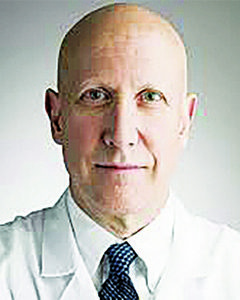
The Truth About GeneticsGenetics is one of the most exciting and intimidating concepts in our modern era. There are very few notions that come along in history holding such powerful promise, mystery and excitement while causing so much confusion and concern.
There is a great amount of misunderstanding surrounding this concept, not only amongst the public, but with medical professionals as well. This is due to the new information and awareness of genetic components as a basis for understanding biological processes.
The first step in trying to comprehend this far-reaching reality is to differentiate the concept of ‘genetics’ from ‘heritability.’
Genetics is the study of human genes. Heritability is that which can be inherited. They are not necessarily the same. While a disease that was inherited was passed genetically, very few diseases are actually passed from one generation to the next: diseases like Sickle Cell Anemia, Hemophilia or Tay-Sachs disease. And even in these ‘heritable’ diseases, how many generations back the disease goes is unknown, perhaps as few as one.
This is because gene mutations are a natural part of life. All babies are born with a slight mutation from both the mother and the father. When we manufacture eggs and sperm (meiosis), there is a built in mutation in each. This ensures the evolutionary process. On top of that, there is an ‘epigenetic’ component to heritability. This is the concept that each generation influences future genetic expression based on “epigenetic” factors such as hardships, catastrophes and other stressful experiences.
There is one more critical concept in order to understand genetics: and that is our ‘genotype’ is not the same as our ‘phenotype.’ A genotype is the actual gene itself. The phenotype is what ends up expressing in an actual person. These are not the same. In order to have a phenotype (our actual bodies), there must be 4 different factors involved:
Genotype (genes) + environment + triggers (e.g. x-ray) + chance = phenotype (person)This means that possessing a certain gene by no means suggests you will express that gene. And herein lies the confusion. Having a gene and expressing a gene in the phenotype (the actual body) are very distant cousins.
Throughout history and evolution, genetic transference has been marked with an ever changing, ever mutating set of variances that adhere to the same fundamental laws of natural selection; that is genes mutate, recombine and strengthen based on the requirement of survival.
It has been definitively shown, through a technique known as ‘Recombinant DNA,’ that genes can and do change, adapt and reform in accordance with opportunities to do so. It has been further demonstrated that the Epigenetic aspects of inheritance are highly influential in future generations. This means that what our grandparents experienced (on all levels) is somehow imprinted and recorded in their grandchildren’s genes and so forth.
This is why it is so important to understand that, at the very most, a gene is a factor among other factors in the development of a particular disease or condition (“multifactorial”). So next time someone tells you ‘it’s genetic’ about a disease someone has such as obesity, diabetes, hypothyroidism, asthma, IBD, migraine headaches etc., realize that this is probably based on this same misunderstanding.
Remember, health conditions and disease are ‘multifactorial.’ There may be a genetic component, but don’t think this makes it destined to express. You and your habits, environment and emotional balance are still by far the biggest known factors.
Dr. Michael Forman is a Clinical Nutritionist. He treats patients experiencing diseases with natural medicines. Many of his patients have been able to reduce or eliminate the drugs they have been taking.
Copyright 2018 Dr. Michael Forman
All rights reserved






